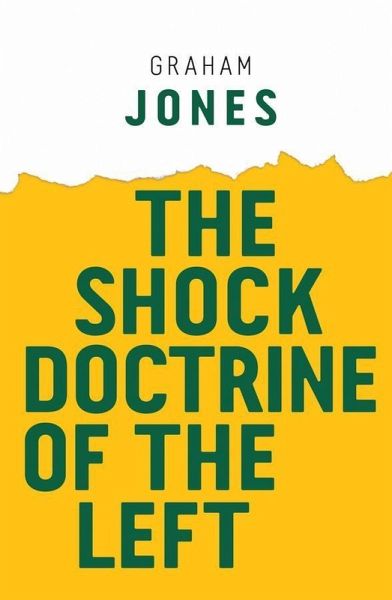
The Shock Doctrine of the Left (eBook, ePUB)
Versandkostenfrei!
Sofort per Download lieferbar
10,99 €
inkl. MwSt.
Weitere Ausgaben:

PAYBACK Punkte
0 °P sammeln!
Shocks, from natural disasters to military catastrophes, have long been exploited by the state to impose privatization, cuts and rampant free markets. This book argues that the left can use such moments of chaos to achieve emancipation. Graham Jones illustrates how everyone can help to exploit these shocks and bring about a new world of compassion and care. He examines how combining mutually reinforcing strategies of 'smashing, building, healing and taming' can become the basis of a unified left. His vivid personal experience underpins a compelling, practical vision for activism, from the scal...
Shocks, from natural disasters to military catastrophes, have long been exploited by the state to impose privatization, cuts and rampant free markets. This book argues that the left can use such moments of chaos to achieve emancipation. Graham Jones illustrates how everyone can help to exploit these shocks and bring about a new world of compassion and care. He examines how combining mutually reinforcing strategies of 'smashing, building, healing and taming' can become the basis of a unified left. His vivid personal experience underpins a compelling, practical vision for activism, from the scale of the individual body to the global social movement. This bold book is a toolkit for revolution for activists and radical millennials everywhere.
Dieser Download kann aus rechtlichen Gründen nur mit Rechnungsadresse in D ausgeliefert werden.












